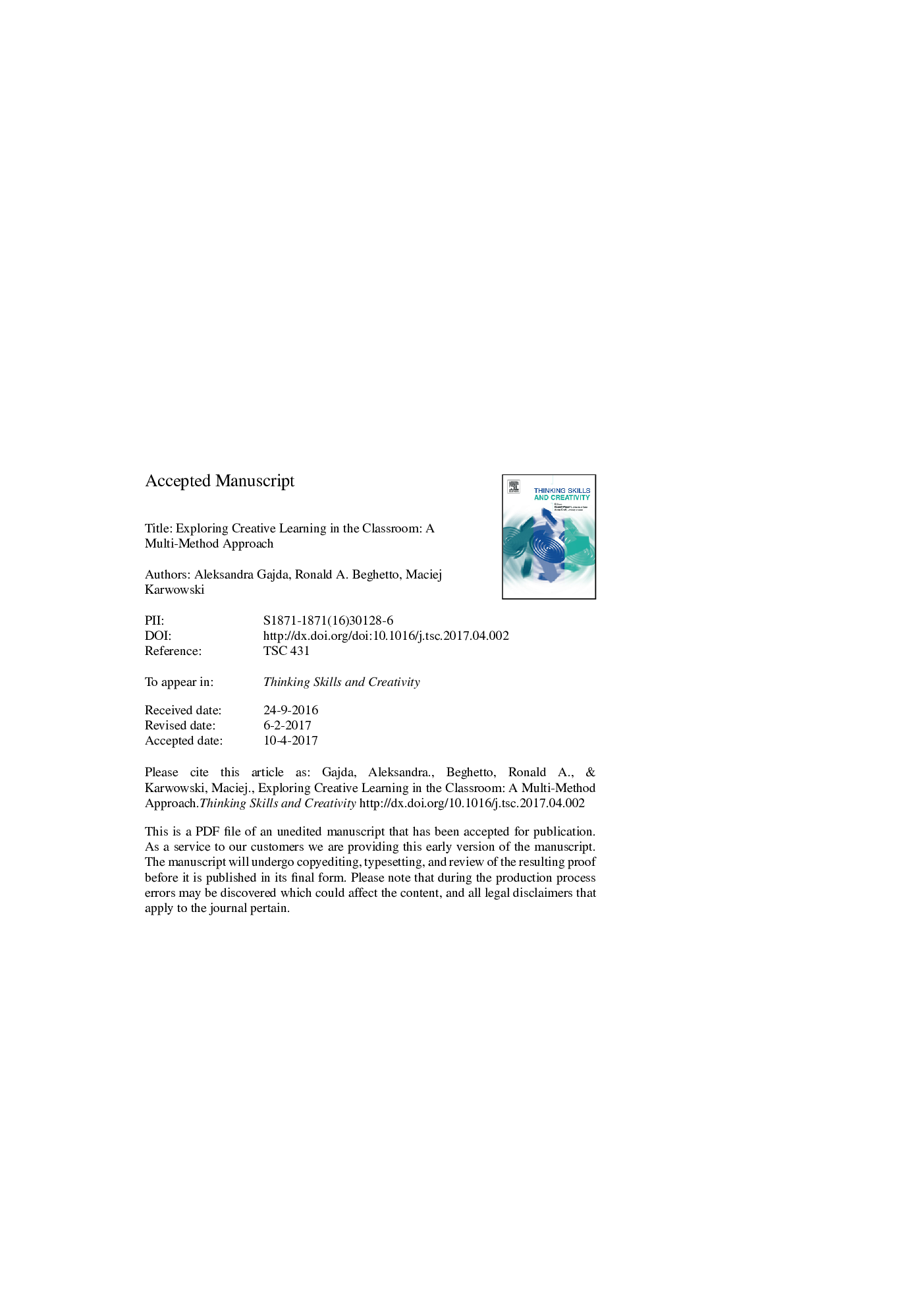| Article ID | Journal | Published Year | Pages | File Type |
|---|---|---|---|---|
| 4941869 | Thinking Skills and Creativity | 2017 | 49 Pages |
Abstract
How might researchers better understand the variations in creative learning in and across classrooms? This article addresses this question. We introduce a multi-method approach that we used to explore the more dynamic features of creative learning in ten elementary classrooms. The ten classrooms were first classified into one of three groups (positive, negative, and null), based on the relationship between students' (N = 204) measured creativity and academic achievement (average positive r = 0.52; average negative r = â0.23; and average null r = 0.02). Next, we analyzed observed teacher and student behaviors in each classroom. We found different patterns of behavior based on classroom classifications. Teachers in classrooms with a positive association between creativity and academic achievement tended to demonstrate more caring behaviors toward students and to provide more emotional support to students. We also found that teacher behaviors associated with encouraging creativity in the classroom were associated with students' positive engagement, self-expression, and ideation (regardless of classroom type). Finally, we used a micro-level interactional analysis to visually illustrate patterns of interactions between teachers and students in three different classroom classifications. We found more extended and exploratory interactions in the positive association classroom, whereas the negative association classroom was characterized by more directive and rapidly closing patterns of interaction and the null association classroom tended to have patterns of interaction that left students' ideas suspended and lacked exploration, development or refinement of ideas. We close by discussing how the use of blended methodologies, like the one demonstrated in this article, can be further refined and developed in subsequent research to explore and understand the more dynamic features of creative thought and action in classroom settings.
Related Topics
Social Sciences and Humanities
Psychology
Developmental and Educational Psychology
Authors
Aleksandra Gajda, Ronald A. Beghetto, Maciej Karwowski,
